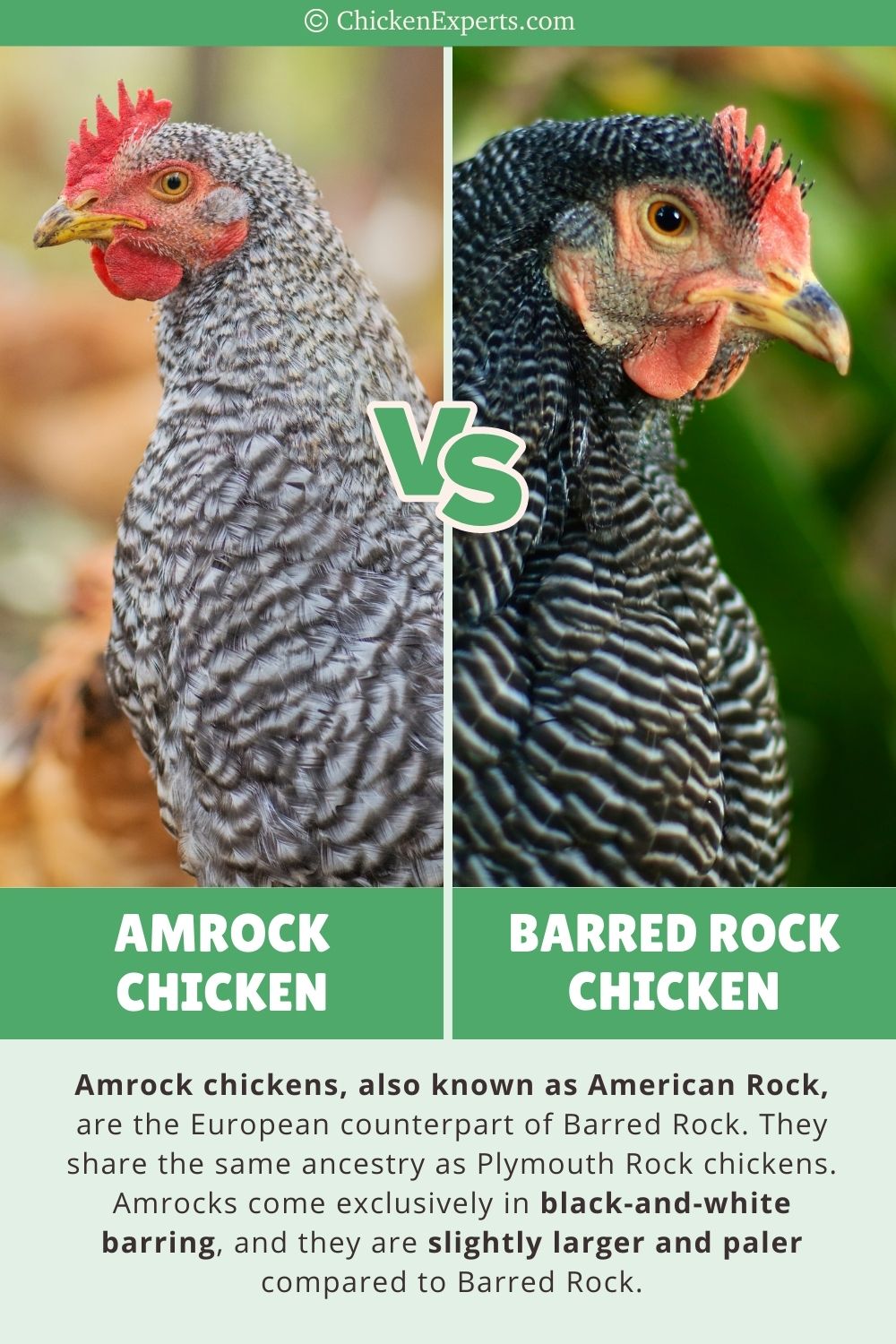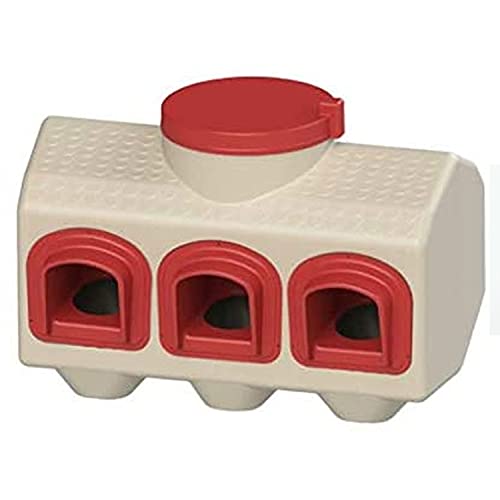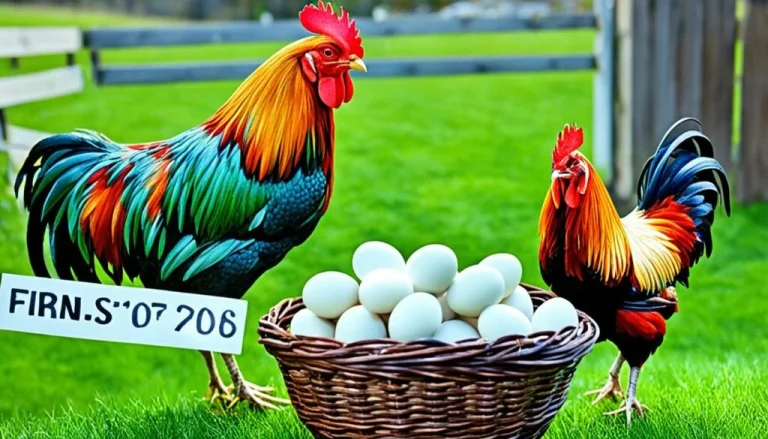Plymouth Rock Rooster Vs. Hen: Battle of the Breeds
Plymouth Rock roosters are known for their vibrant plumage and assertive demeanor. Hens are more docile and primarily valued for their egg production.
Plymouth Rock chickens are a popular breed among backyard poultry enthusiasts. Originating in the United States, these birds are easily recognizable due to their striking barred feathers.
They come in rooster and hen varieties, each with unique characteristics. Roosters display vibrant colors and often have a more dominant personality, while hens are generally calmer and focus on laying eggs.
This breed excels in adaptability, making them suitable for various climates. Their friendly nature and hardiness make them a favorite for families and small farms alike. Learning the differences between Plymouth Rock Rooster Vs. Hen can help potential owners choose the right bird for their needs.
What Is Plymouth Rock Chicken?
The Plymouth Rock chickens are among the most popular breeds, considering their friendly nature and hardiness. They have black and white stripes in their barred feathers so are easy to recognize. The birds are dual-purpose, meaning they are valued for their eggs and meat. Plymouth Rocks are excellent layers and steadily supply large brown eggs. They’re hardy in most climates and are easy to care for, just perfect for a beginner and backyard flocks. Known for their calm nature, they’re a favorite among small farms and families wanting low-maintenance, productive chickens that are quite charming in the coop.
Plymouth Rock Rooster Vs. Hen

Credit: chickenexperts.com
The Plymouth Rock Rooster and hen have unique physical traits. The rooster is larger and has a prominent comb. Its feathers are striking, often with black and white stripes. The hen is smaller and has a softer appearance. Her feathers are also striped but less vibrant.
Both genders have a friendly nature, but they differ in temperament. Roosters are known to be more protective and assertive. They often crow loudly to mark their territory. Hens are generally calmer and more social. They enjoy interacting with each other and their environment.
Historical Roots of Plymouth Rock Chickens

Credit: co.pinterest.com
Plymouth Rock chickens have a rich history. They originated in the early 1800s in the United States. Early breeders aimed for a good meat and egg layer. The breed quickly gained popularity among farmers.
Plymouth Rocks are known for their striking striped feathers. Their calm nature makes them great for families. Over the years, they became a favorite in backyard flocks. Their adaptability to various climates also helped their rise.
As time passed, this breed’s popularity grew. They became a common sight in poultry shows. Today, many people still cherish Plymouth Rock chickens for their beauty and productivity.
Physical Attributes Comparison
The Plymouth Rock Rooster is generally larger than the hen. Roosters can weigh around 8.5 pounds, while hens weigh about 7.5 pounds. This size difference is noticeable when they stand side by side.
Roosters and hens have a stocky build with a broad chest. Their legs are strong and sturdy, supporting their weight well.
Feather patterns are striking. Roosters often display brighter colors than hens. The most common feather pattern includes black and white stripes. Hens usually have more muted colors, which help them blend into their surroundings.
Roosters often showcase iridescent feathers that shimmer in the light. Hens, on the other hand, tend to have a softer, more uniform appearance.
Behavioral Differences of Plymouth Rock Chicken

Credit: freyshatchery.com
Plymouth Rock roosters and hens show different social behaviors in a flock. Roosters are often more dominant. They lead the flock and protect it from dangers. Hens tend to be more social and nurturing. They form close bonds with each other.
Roosters are known for their loud crowing. This sound alerts the flock to the new day. It also signals their presence and dominance. Hens communicate through clucking. Their clucking is softer and often indicates contentment or calling chicks.
| Behavior | Rooster | Hen |
|---|---|---|
| Social Role | Dominant leader | Supportive and nurturing |
| Sound | Crowing loudly | Clucking softly |
| Group Interaction | Protective | Social bonding |
Egg Laying Capabilities
The Plymouth Rock hen is known for its excellent egg production. It can lay around 200 to 250 eggs each year. Most eggs are medium-sized and have a brown color. The size and color can vary slightly among individual hens.
Eggs can be light to dark brown, depending on the hen’s genetics. Some hens may produce larger eggs than others. Factors like diet and environment can also affect egg size.
| Egg Size | Color Variations |
|---|---|
| Medium | Light Brown |
| Large | Dark Brown |
Role In The Ecosystem
The Plymouth Rock rooster and hen play a vital role in their ecosystem. They help control pest populations by foraging for insects and larvae. Their foraging habits also help aerate the soil, promoting healthy growth for plants.
These birds consume a variety of seeds, grains, and insects. This feeding behavior benefits local flora by spreading seeds. As they roam, they help keep the landscape balanced and healthy.
The Plymouth Rock breed positively impacts the local fauna too. By creating a space for insects and other small animals, they contribute to a diverse ecosystem. Their presence ensures a rich variety of wildlife thrives nearby.
Plymouth Rock In Modern Farming
Plymouth Rock chickens are popular in backyard poultry and small-scale farms. They are friendly and easy to care for. These birds provide good egg production and are great for families. Their striking black and white feathers make them attractive.
In commercial farming, Plymouth Rock chickens offer sustainability. They are hardy and adapt well to different environments. Farmers appreciate their ability to thrive with minimal resources. This breed is also known for its meat quality, making it a dual-purpose choice.
| Feature | Plymouth Rock Rooster | Plymouth Rock Hen |
|---|---|---|
| Weight | 8.5 lbs | 6.5 lbs |
| Egg Production | Low | Medium |
| Temperament | Confident | Friendly |
Conclusion
Choosing between a Plymouth Rock rooster and a hen depends on your needs and preferences. Roosters are known for their vibrant personalities and protective nature, while hens offer consistent egg production and companionship. Both bring unique benefits to your flock. Consider your goals to make the best choice for your poultry experience.
FAQs
A Plymouth Rock chicken can lay around 200-280 eggs annually. That is approximately 4 to 5 eggs per week, on average. Consistent and determined, Plymouth Rocks are known to be effective layers that can give large brown eggs. Their steady production makes them an ideal choice when the family or small farm wants a regular supply of fresh eggs.
A Plymouth Rock chicken will cost anything from $5 to $20, depending on the age of the chicken, breed quality, and where you get it. Generally speaking, chicks will be at the low end, while older birds or show-quality chickens may be at the higher end of that scale. Normally, they are found in local farms, hatcheries, or online poultry suppliers.
Plymouth Rock rooster is a friendly and laid-back bird. They have a nature of being light with people and among other chickens and would be fine for backyard flocks. The easygoing nature of a Plymouth Rock is generally easier to handle than some rooster breeds. Of course, every rooster has its personality, but in general, the Plymouth Rock is approachable and steady in disposition, which can be a pleasant addition to the family farm or homestead.
Plymouth Rock roosters are pretty loud. They do a lot of crowing, especially in the mornings. This crowing is loud and sustained, a problem if you live around other people. In most respects, though, the noise they make isn’t as high as that of other breeds. If you wanted a quieter flock, then you should think of another breed from your set of Plymouth Rock hens.
Most of the time, Plymouth Rock chickens start laying eggs around 18 to 22 weeks of age, but it might vary a little with considerations such as diet and health, sometimes even surroundings. With good care, these hens can be very consistent in laying brown eggs and will continue for many years. Among chicken breeders, especially those with backyard flocks, Plymouth Rocks are considered steady egg-layers.






